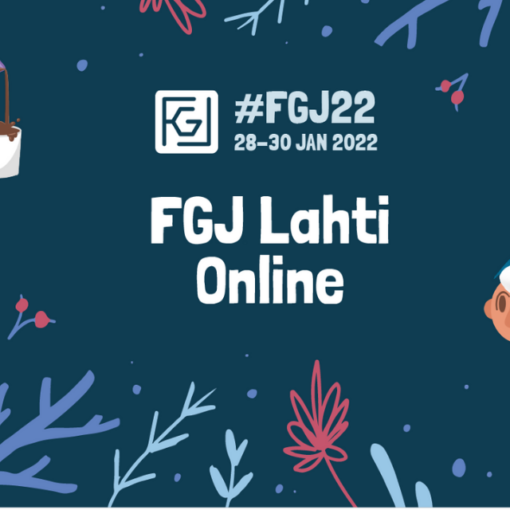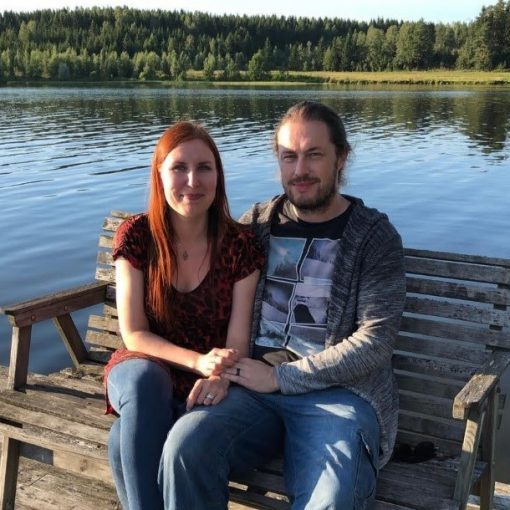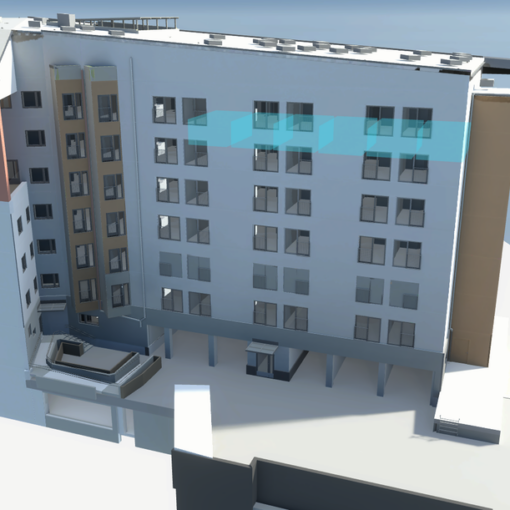LAB University of Applied Sciences participated with ten students from in a Blended Intensive Programme (BIP) called Tourism Destination Branding via Nature, Slow Food and Industrial Heritage in Saarbrücken, Germany.
During the week we visited a.o. Völklinger Hütte, former iron works and nowadays a UNESCO’s World Heritage Site for industrial heritage (Völklinger Hütte 2025). The visit enabled a deeper understanding of the intersection between industrial heritage, cultural tourism as well as regional and European history. Many do not know now that the European Union was born from the co-operation in mining and steel industry in Saar region among France, Luxemburg and Germany.
![[Alt text: a large group of people standing outside in sunshine.]](https://blogit.lab.fi/labfocus/wp-content/uploads/sites/8/2025/05/189_2025_Transformative-learning-through-alpacas_1-1024x637.jpg)
Cross-sectional sustainability
Responsible tourism is a new standard, and sustainability is in the core of all businesses as a strategic choice. During the BIP we could experience sustainability through using public transport to get to the destination to lower carbon emissions, by enjoying a vegetarian slow food dinner or during our alpaca hike in the forest. The interaction with the alpacas gave all participants a chance to experience the healing powers of nature and authentic experiences with a calm animal that nobody had seen before. As children in densely populated countries like Germany no longer have contacts to animals, the alpaca farm has become a popular venue for parents to host their children’s birthday parties (Bliesgau-Alpaka 2025).
During BIPs students learn things that can never be learned from books. During a visit to a local honey production facility in the Bliesgau biosphere students learned about different phases of honey production and collaboration with other regional producers through storytelling. The facility’s shop is a popular place of visit for cycling tourists who, especially during weekends, cycle from one spot to another combining sports with tasty culinary experiences focusing on slow food produced in local restaurants. Saar Region has branded slow food with various ingredients, incl. locally produced lentils, to promote more sustainable food production and culinary experiences (Gettmann 2025; Saarland 2025). A learning experience was that tourism can also be relaxed, reflective and personal and not just frantic and commercialized.
![[Alt text: two persons and an alpaca.]](https://blogit.lab.fi/labfocus/wp-content/uploads/sites/8/2025/05/189_2025_Transformative-learning-through-alpacas_2-1024x629.jpg)
The importance of customer profiles in tourism
Understanding customer segments and their profiling in the tourism industry is essential so that marketing efforts truly resonate with the target group, can be successful and not lead to wasted resources and missed opportunities. Customer segments in tourism vary e.g. according to age, fitness, motivation as well as preferred channels of communication and how they want to make reservations. These must be taken into consideration in customer profiling.
Through segmentation tourism businesses do not just generate more sales, but through designing the product to meet the special needs of the customer segment, the company also produces more inclusive and meaningful experiences for visitors. This became very visible at the iron works where a previous employee of the ironworks, now an on-site guide, shared stories on how challenging it was to work inside the ironworks in dusty and hot work environments. Unwashed windows in the furnace hall and a wooden container with a table and chairs inside so that employees could eat their packed lunch close to the workplace could still be seen at the site and they both provided a nostalgic journey to the past.
The BIP intensive week was an enriching experience that provided valuable insights into destination branding, customer segmentation, sustainability, and multicultural collaboration. It also highlighted the importance of local environmentally friendly practices, supporting local economies, and cultural heritage preservation. For individual students the BIP was a moment of personal growth and a boost in confidence in multicultural teamwork and presentation skills or even the final push to decide that she would return to Saarbrücken to student exchange.
Author
Jaana Häkli is Senior Lecturer at LAB University of Applied Sciences.
References
Bliesgau-Alpaka. 2025. Cited 13 May 2025. Available at https://www.bliesgau-alpaka.de/
Gettman, H. 2025. Lecture on Slow food and Sustainable cuisine held during the BIP.
Saarland. 2025. Ein Hoch auf die Genuss-Schnecke. Cited 13 May 2025. Available at https://www.urlaub.saarland/tipps-stories/Menschen-aus-dem-Saarland/ein-hoch-auf-die-genuss-schnecke
Völklinger Hütte. 2025. Cited 13 May 2025. Available at https://voelklinger-huette.org/




